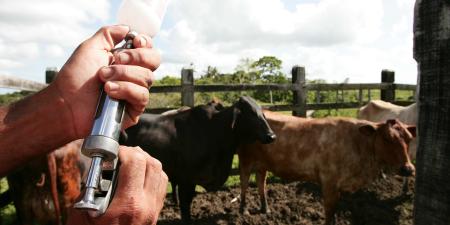Abstract
Health problems of global warming are daunting in severity and magnitude and will only get worse. Yet literacy about these problems is poor and plans to alleviate them are too early in development to be responsive to current levels of global threat and individual need. Social and ecological determinants of health and illness are exacerbated by excessive heat and flooding; lack of food, safe water, and secure shelter; and loss of arable land for farming. This article considers the nature and scope of ethicists’ roles in awakening clinicians and the public to this crisis and offers 4 recommendations to reduce morbidity and mortality from climate change.
Health Literacy and Climate Literacy
The concept of health literacy has long been of concern to bioethics, which has focused on 2 considerations. First, bioethicists have helped prepare educational materials, develop clinicians’ communication skills, and empower patients to ask questions, all to enable individuals to understand basic and personally relevant health information. Second, bioethicists have emphasized that “low” health literacy is not a stigmatized individual failing but rather a failure of public education and health care institutions. The definition of health literacy was revised in Healthy People 2030 to emphasize that individuals should be able not only to understand but also to use health-related information for their benefit, and, importantly, to emphasize organizations’ role by defining organizational health literacy as “the degree to which organizations equitably enable individuals to find, understand, and use information and services to inform health-related decisions and actions for themselves and others.”1 This expanded definition places much-needed emphasis on the key justice component of health literacy: organizations’ duty to “equitably enable” the health literacy of individuals.
Climate literacy expands this organizational duty and its justice implications because it requires not only educating populations about complex and politically contested data but also enabling effective use of those data. This latter requirement in turn entails changing not only individual behavior but also the practices of the very organizations that have contributed to climate change and health disparities in the United States and around the world. Bioethics and the medical establishment have a difficult and critically important task ahead: to help everyone fulfill their duty to understand and act upon information about climate change and its adverse and disparate health effects.2
Health Problems of Global Warming
The effects of climate change are profound, overwhelming, and increasingly severe. Melting polar ice; shrinking permafrost regions; rising and warming oceans; hotter average temperatures; increasingly frequent and severe forest fires, hurricanes, typhoons, and similar storms; and unprecedented flooding are part of what we are already experiencing and what we can expect to worsen.
The health consequences of these environmental changes are almost unimaginable. Massive numbers of deaths, especially among the world’s poorest populations, will occur because of unrelenting heat, uninhabitable land, food and water shortages, and the breakdown of economies and national governments. Already a quarter of the earth’s population lacks safe drinking water, with the result that nearly 2 billion people currently struggle to meet their daily needs for clean water.3 By 2030, increased salination of irrigated farmland, evaporation caused by increased heat, and frequent flooding of coastal areas will mean that an additional 1 billion people will be without a safe source of potable water.4 Moreover, climate change affects the spread, intensity, and seasonality of infectious diseases like malaria and cholera.5,6 In general, climate change will produce a substantial increase in transmission of disease worldwide.4 Heat emergencies, mental health disorders, and broader health problems like declining food safety and its consequences add to the growing damage of climate change.7
Climate change will produce a substantial increase in transmission of disease worldwide.
How fast is climate change happening? It is still unknown whether temperatures will rise at a predictably steady pace with the rise of greenhouse gas emissions or whether—the more likely scenario—there is a tipping point, caused by self-reinforcing feedback loops, beyond which devastating changes cascade and accelerate.8,9 Yet, despite increasingly clear warnings, climate literacy is still in its infancy. As Al Gore emphasized, anthropogenic global warming is an “inconvenient truth,” since the burning of fossil fuels is integral to the lifestyle of resource-rich industrial nations.10 A high-carbon lifestyle is reflected in what we eat, where and how we live, what we wear, how often we fly, how far we drive, and what we consume more generally.
Health Literacy and Social Causes
To say that the medical and health care systems, especially those of advanced democracies, are ill-equipped to respond effectively to the health crises induced by global warming is a gross understatement. Health care itself has a very large carbon footprint.11 Medical and health systems have focused almost exclusively on rescue medicine and very little on public health, which has resulted in widespread failure to address the key social determinants of health. Social determinants refer to education, employment status, stress, nutrition, and housing, as well as other structural factors and cultural norms—all understood now as powerful “fundamental causes” of health disparities, accounting for a substantial proportion of health outcomes.2,12,13 People who live in poor neighborhoods with few educational opportunities, inadequate access to food, inferior housing, and low-paying jobs live shorter lives with greater morbidity.14 These profound disparities of health and well-being are compounded when their bodies are Black or brown and they are also subjected to explicit and implicit racism.15 Research demonstrating the social determinants of poor health has been conducted for decades,16 yet we continue to support and lionize a medico-centric system of health care that addresses only the small proportion of illnesses in which modern medicine specializes.
What does all this mean for our ability to respond to health crises of global warming? It is imperative to acknowledge that the great preponderance of health deficits arising from global warming present as “social determinants.” Fewer communities will be safe from flooding; adequate food and clean water will become harder to acquire; and access to health care professionals will be more difficult as clinics and hospitals struggle to treat more patients with increased morbidity. The fractured national response to the COVID-19 pandemic prefigures what is likely to occur with global warming without major shifts in priority setting. Excess deaths from COVID-19 in Hispanic and Black communities in the United States have been demonstrated repeatedly.17,18 Whether we can avoid simply repeating this pattern in the era of global warming we are entering is a question of justice that has largely been neglected in bioethics.
Health Justice
For most of its 50 years as a field, bioethics has been handmaiden to clinical medicine and medical research, captured by the emphasis on curing rather than preventing disease. The reasons for this orientation are multiple. Large academic medical centers are where the jobs are, and cultural fascination with rescuing individuals by medical means has made “repair shop” medicine the preoccupation of both clinical medicine and bioethics.19 In this paradigm, distributive justice issues—who will receive the scarce kidney, the vaccine in short supply, or the last intensive care unit (ICU) bed—dominate the literature. Similarly, distributive justice issues dominate bioethical analyses of the COVID-19 pandemic, as doctors and hospitals have struggled to fairly allocate admissions, ICU beds, respirators, nursing care, and—more recently—vaccines. Largely neglected have been the social forces that cause people from poor and minoritized communities to need greater access to these services and to die with greater frequency.
More attention to social determinants of health can be seen in the broader scholarly and policy environment of which bioethics is a part. Medical publications now routinely feature articles on the social determinants of health and disease18,19; institutions regularly pay attention to diversity, equity, and inclusion, as well as race and racism20,21; and the National Institutes of Health is fostering initiatives that explicitly devote attention to inclusion of neglected populations.22,23 Bioethicists are increasingly aware of social determinants and recognize that the great injustices of society play themselves out in significant disparities in health status, health care access, and health outcomes.24,25,26,27 Yet much more attention is needed if bioethics is to play any significant role in helping to meet the health challenges of global warming.
The following broad recommendations ask bioethics scholars to undertake professional and public education and advocacy to foster understanding and use of information about climate change and health disparities. This work will require partnership with clinicians, public health officials, policy makers, social epidemiologists, and others who make essential contributions to reducing health disparities by addressing their fundamental causes. The recommendations are directed not only to bioethicists, but also to health care professionals and organizations, health professional students, and the general public. Countering global warming and its health effects will take all of our efforts.
Recommendations
- Bioethicists, medical students, and clinicians should help medical institutions reduce their degradation of the environment, as large health centers—where many bioethicists work—have huge carbon footprints, thus damaging public health even as they provide treatment.2
- Recognizing the many social causes of ill health means that “all policy is health policy,”28 including housing, transportation, food, water, energy, urban development, and education, and, accordingly, that all stakeholders have advocacy roles. Just how powerfully all these policies affect health will become increasingly clear as global warming accelerates. The environmental consciousness promoted by the Biden Administration for all sectors of government29 must also be taken up by local and state governments and by industry leaders.
- Effectively meeting the justice challenges of health in the era of global warming entails recognizing and working to eliminate the pervasive health effects of racism. The choice before us is a neoliberal Anthropocene era, in which existing inequities are simply allowed to play themselves out, or a more democratic Anthropocene era in which benefits and burdens are shared and people recognize their radical interdependence and the need for solidarity.30 Any possible human survival and flourishing depends on taking the latter path.
- It is imperative for bioethicists to help foster greater climate literacy on the part of the public. Without it, the millions that the oil, gas, and coal industries spend on congressional lobbying—over $124 million in 202231—will delay any national response until it is too late. Pressure on public officials by a more climate-savvy public is a sine qua non for effective change, and perhaps for our very survival.
References
-
Office of Disease Prevention and Health Promotion. Health literacy in Healthy People 2030. US Department of Health and Human Services. Accessed August 5, 2023. https://health.gov/healthypeople/priority-areas/health-literacy-healthy-people-2030
-
King NMP, Henderson GE, Churchill LR. Bioethics and the global warming crisis. In: Bioethics Reenvisioned: A Path Toward Health Justice. University of North Carolina Press; 2022:110-136.
-
UNESCO World Water Assessment Programme. The United Nations World Water Development Report 2023: Partnerships and Cooperation for Water. UNESCO; 2023. Accessed September 20, 2023. https://unesdoc.unesco.org/ark:/48223/pf0000384655
-
Maslin M. Climate Change: A Very Short Introduction. Oxford University Press; 2021.
- Semenza JC, Suk JE, Estevez V, Ebi KL, Lindgren E. Mapping climate change vulnerabilities to infectious diseases in Europe. Environ Health Perspect. 2012;120(3):385-392.
- Greer A, Ng V, Fisman D. Climate change and infectious diseases in North America: the road ahead. CMAJ. 2008;178(6):715-722.
- Jameton A. Time frames for saving the planet. Ethics Policy Environ. 2016;19(2):1-5.
-
Lynas M. Our Final Warning: Six Degrees of Climate Emergency. Fourth Estate; 2020.
-
Bendell J. Deep adaptation: a map for navigating climate tragedy. IFLAS occasional paper 2. University of Cumbria; 2018. Accessed October 25, 2023. https://insight.cumbria.ac.uk/id/eprint/4166/1/Bendell_DeepAdaptation.pdf
-
Guggenheim D, Gore A. An Inconvenient Truth. Paramount Classics; 2006.
-
Seervai S, Gustafsson L, Abrams MK. How the US health care system contributes to climate change. Commonwealth Fund. April 19, 2022. Accessed April 24, 2023. https://www.commonwealthfund.org/publications/explainer/2022/apr/how-us-health-care-system-contributes-climate-change
-
Link BG, Phelan J. Social conditions as fundamental causes of disease. J Health Soc Behav. 1995;(suppl):80-94.
-
Williams DR, Lawrence JA, Davis BA. Racism and health: evidence and needed research. Annu Rev Public Health. 2019;40:105-125.
-
Hayes TO, Delk R. Understanding the social determinants of health. American Action Forum. September 4, 2018. Accessed August 5, 2023. https://www.americanactionforum.org/research/understanding-the-social-determinants-of-health/
-
Kreiger N. Embodying Inequality: Epidemiological Perspectives. Routledge; 2016.
-
Marmot M, Wilkinson RG, eds. Social Determinants of Health. 2nd ed. Oxford University Press; 2006.
-
Lukowsky LR, Der-Martirosian C, Dobalian A. Disparities in excess, all-cause mortality among Black, Hispanic, and White veterans at the US Department of Veterans Affairs during the COVID-19 pandemic. Int J Environ Res Public Health. 2022;19(4):2368.
- Shiels MS, Haque AT, Haozous EA, et al. Racial and ethnic disparities in excess deaths during the COVID-19 pandemic, March to December 2020. Ann Intern Med. 2021;174(12):1693-1699.
- Berwick DW. The moral determinants of health. JAMA. 2020;324(3):225-226.
-
Media statement from CDC director Rochelle P. Walensky, MD, MPH, on racism and health. News release. Centers for Disease Control and Prevention; April 8, 2021. Accessed October 25, 2023. https://www.cdc.gov/media/releases/2021/s0408-racism-health.html
- Yearby R. Race based medicine, colorblind disease: how racism in medicine harms us all. Am J Bioethics. 2021;21(2):19-27.
-
Understanding and addressing the impact of structural racism and discrimination on minority health and health disparities (R01 clinical trial option). RFA-MD-21-004. National Institutes of Health. March 23, 2021. Accessed September 27, 2023. https://grants.nih.gov/grants/guide/rfa-files/rfa-md-21-004.html
-
National Institutes of Health. UNITE. US Department of Health and Human Services. Reviewed May 23, 2023. Accessed August 4, 2023. https://www.nih.gov/ending-structural-racism/unite
-
Powers M, Faden R. Social Justice: The Moral Foundation of Public Health and Health Policy. Oxford University Press; 2008.
- Daniels N. Equity and population health: toward a broader bioethics agenda. Hastings Cent Rep. 2006;36(4):22-35.
-
Jennings B. Ecological Governance: Toward a New Social Contract With the Earth. West Virginia University Press; 2016.
- Jennings B, Dawson A. Solidarity in the moral imagination of bioethicists. Hastings Cent Rep. 2015;45(5):31-38.
-
Adimora AA. All policy is health policy: pathways to HIV (and COVID-19.) IDWeek. November 5, 2020. Accessed October 27, 2023. https://idweek.org/videos/2020-kass-lecture/
-
Nilsen E. Biden announces new environmental justice initiatives. CNN. Updated April 21, 2023. Accessed October 25, 2023. https://www.cnn.com/2023/04/21/politics/environmental-justice-biden/index.html
-
Purdy J. After Nature: A Politics for the Anthropocene. Harvard University Press; 2015.
-
Sayki I, Cloutier J. Oil and gas industry spent $124.4 million on federal lobbying amid record profits in 2022. Open Secrets. February 22, 2023. Accessed October 25, 2023. https://www.opensecrets.org/news/2023/02/oil-and-gas-industry-spent-124-4-million-on-federal-lobbying-amid-record-profits-in-2022/



